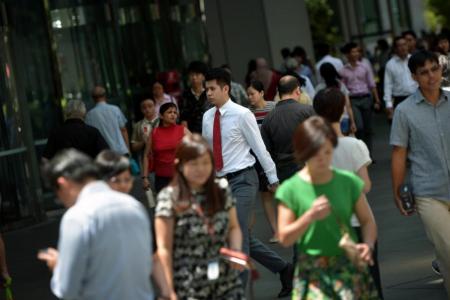For Singaporeans, race still matters
They are more likely to see new citizens from main ethnic groups here as "truly Singaporean", says study
Singaporeans are more likely to welcome new citizens as "truly" one of their own if they are from one of the country's four main races, a new study shows.
In other words, new Singaporeans who are Chinese, Malay, Indian or Eurasian have a higher chance of acceptance here, compared to those of other ethnicities such as Korean, Japanese, Filipino or Arab.
The study by the Institute of Policy Studies (IPS) and Channel NewsAsia asked 2,020 Singaporeans and permanent residents questions like the degree to which they accepted a new citizen of a particular ethnicity as "truly Singaporean".
The results show that someone from a Malay background would be most accepted, at nearly 97 per cent, with those from a Chinese background a close second at 96 per cent. They were followed by those from Indian (91 per cent) and Eurasian (84 per cent) backgrounds.
About 75 per cent said they would accept those of Japanese or Korean ethnicities. For Filipinos, Arabs and Africans, it drops below 65 per cent.
IPS senior research fellow and study leader Mathew Mathews said the findings show the Chinese, Malay, Indian and Others (which includes Eurasians) framework resonates with Singaporeans. And it plays a part in associating national identity with the core ethnic groups .
Other findings include:
- Almost half the respondents felt they have a "simultaneous" Singaporean and ethnic identity, while 35 per cent identified more with nationality and 14 per cent more with their ethnicity.
- More Singaporeans prefer their children and grandchildren to date Chinese (95 per cent) and Caucasians (75 per cent), compared with Malays (65 per cent) and Indians (61 per cent).
- Religious beliefs are more important to Malays, with 93.3 per cent feeling it is important to practise Islam to be considered Malay. For Hinduism, 70.6 per cent of Indian respondents felt it was significant to their ethnicity, while 37.4 per cent of Chinese felt the same way with Taoism or Buddhism.
- Despite expressing high levels of interest, less than half the respondents regularly experienced or took part in the practices and activities of other cultures.
- Young Singaporeans' lack of inter-cultural understanding may be a result of fewer interactions across racial lines, a trend that "bears watching".
Dr Mathews said Singapore is still not the "multicultural nirvana that some would expect", and the study reflects how ethnic identity continues to be "important" to Singaporeans.
"The study would show that we still need race-based policies. When it comes to the protection of minorities, it is still an important aspect," he said.
FOR MORE, READ THE STRAITS TIMES TODAY
Get The New Paper on your phone with the free TNP app. Download from the Apple App Store or Google Play Store now



